Category Archives for "Self Mastery"
Master yourself to manifest abundance
Master yourself to manifest abundance
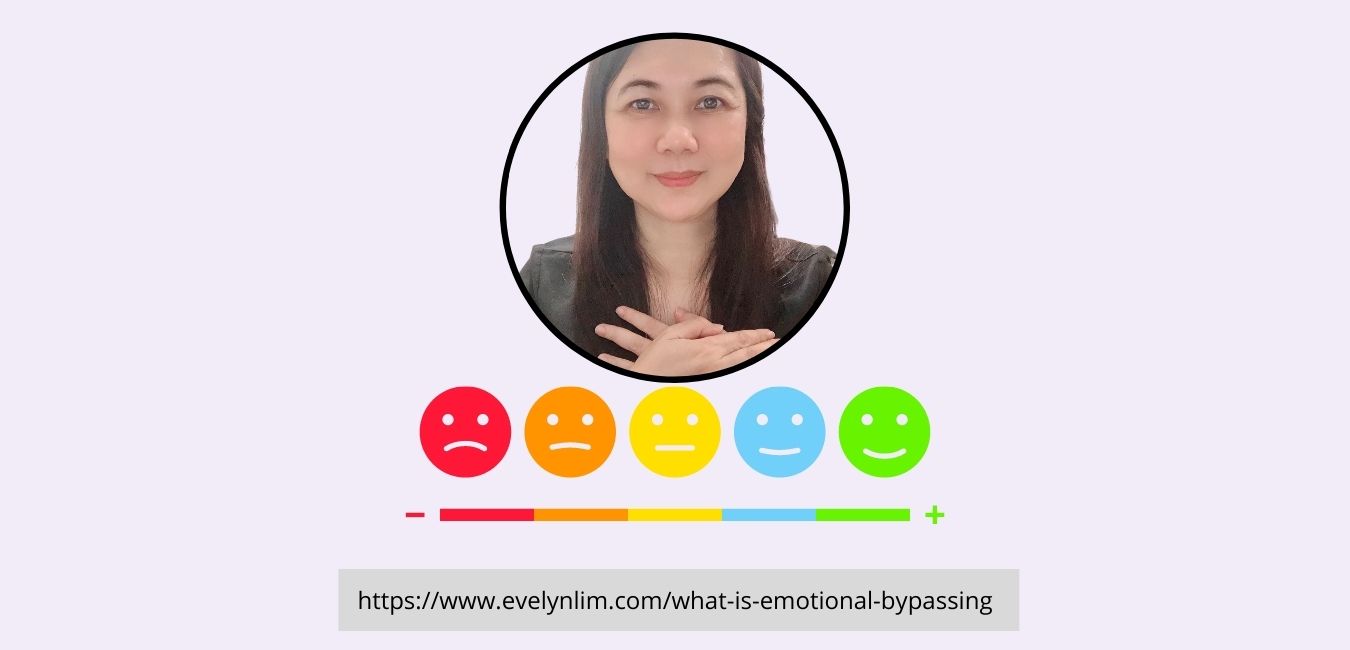
Emotional bypassing happens when we don’t allow ourselves to fully process our negative feelings. Instead, we sweep them under the carpet or we gloss over them by “willing” the mind to think positively. Say, something traumatic happens to us. We don’t face it because we fear feeling worse off. Thus, instead of grieving or upset, we simply put on a brave front and pretend that all is fine.
In another instance, we guilt-trip ourselves for feeling negative when we ought to be grateful. We believe that we have no right to complain about feeling poorly where someone else is at a more disadvantaged situation. And so we stuff our feelings inside.
Emotional bypassing is often referred to as spiritually bypassing. It was the late psychologist John Welwood who coined the term spiritual bypassing to describe what he saw in a Buddhist community. He describes it as the “tendency to use spiritual ideas and practices to sidestep or avoid facing unresolved emotional issues, psychological wounds, and unfinished developmental tasks.” In the practice of non-attachment, many Buddhists deny what they truly feel.
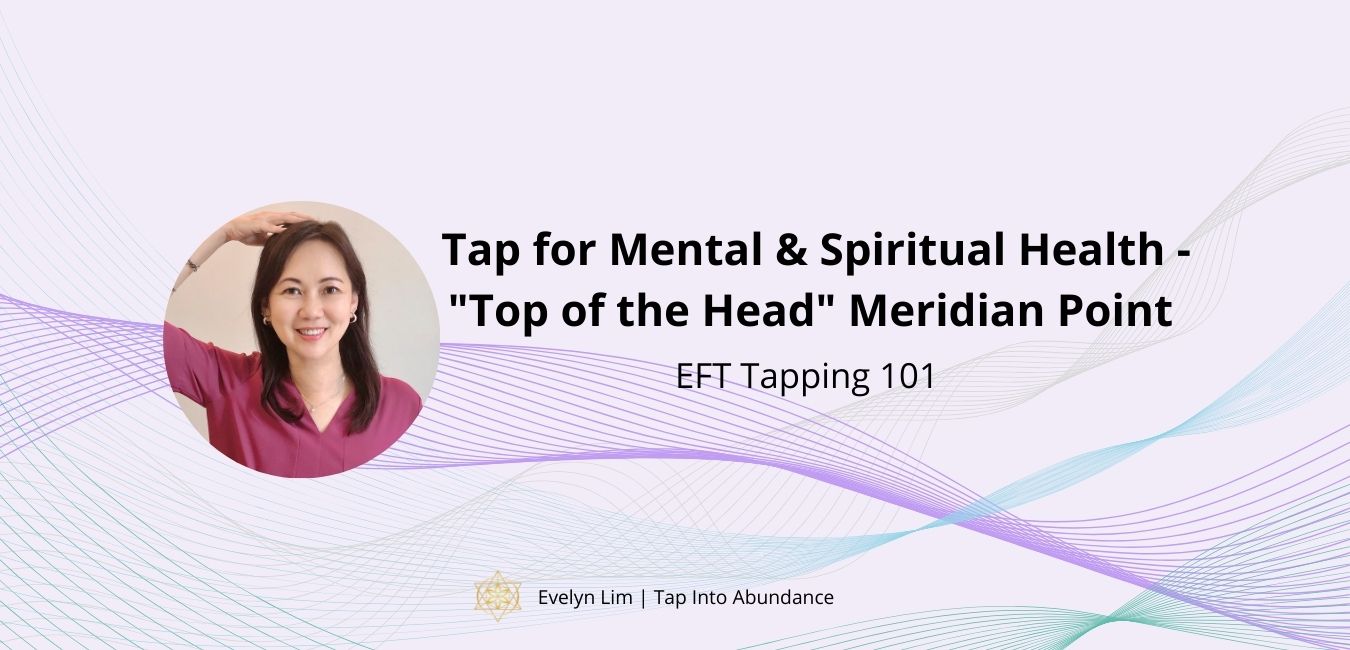
Would like to boost mental and spiritual health?
One way for boosting mental and spiritual health is the Top of the Head or the “Bai-hui” meridian point. The point sits on the crown of our head. The literal Chinese-to-English translation of “Bai-hui” means “the meeting place of the hundreds”. Aptly, it is where all the energies of our body converge and meet.
In TCM, it is often said that “heaven, earth and man are the three powers”. The top of our head is where our human body connects with heaven. It is where the gateway to spirituality resides and and where a lotus flower blossoms in the wake of rising consciousness ((visualise a slow-motion video with the petals unfolding).
The “Bai-hui” meridian point is also the meeting point of all the Yang energy in the body. TCM practitioners use this acupoint in cases of neurological and psychological diseases. By activating this point, it promotes relaxation and mental focus.
Continue reading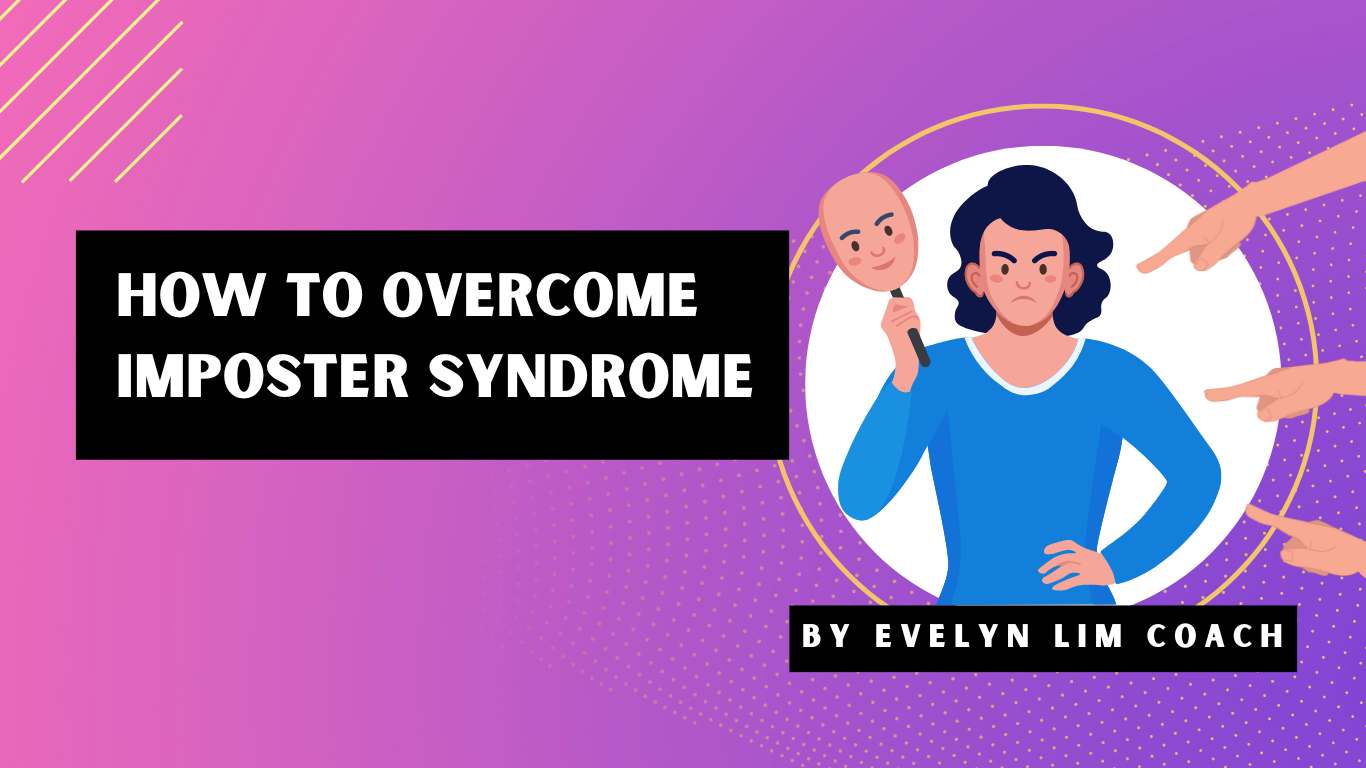
Is imposter syndrome in the way for you with putting yourself out there?
Perhaps you have been hoping to step up as a coach, leader or to move to the next level.
But somehow you believe that you are some kind of a “fraud” even though you already have the experience or expertise in your field of work.
You just don’t feel “good enough”.
It is also possible that you are afraid of being exposed at any moment.
Well, in case you think that you are the only one facing imposter syndrome, what I’d like to share with you is: you are not alone!
Continue reading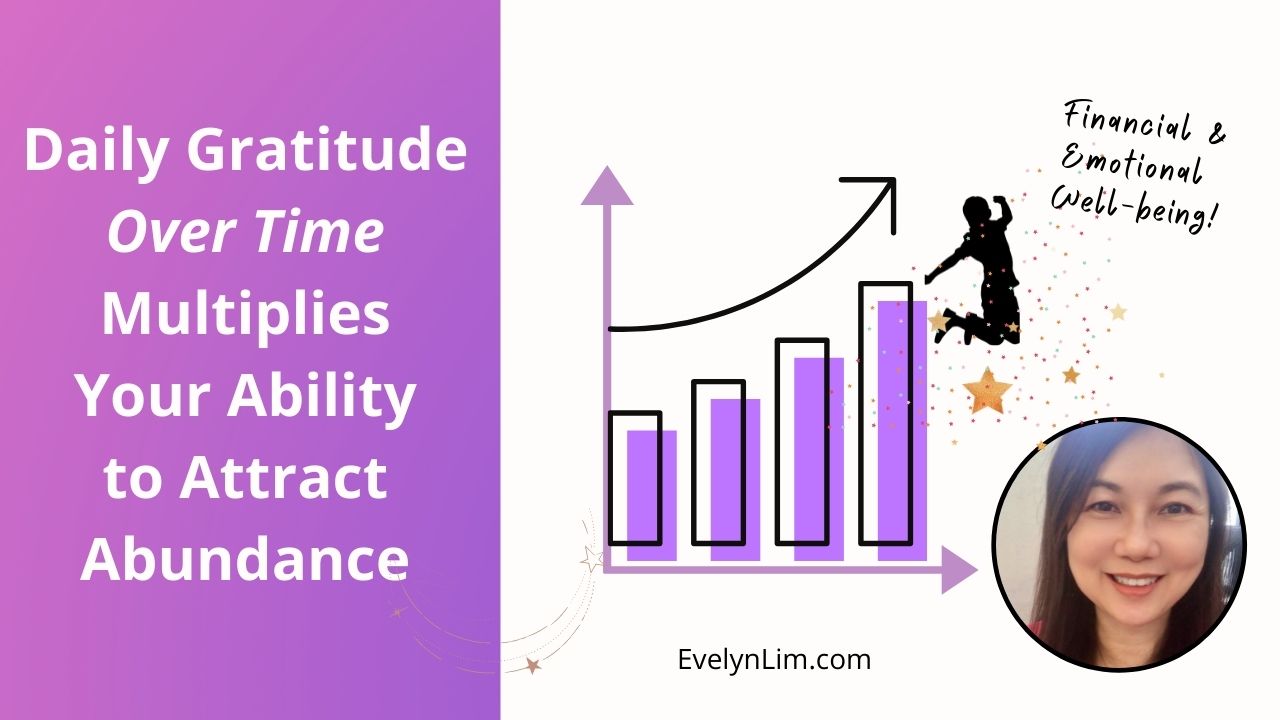
I’d like to invite you to adopt a practice of daily gratitude, if you are interested to shift into an abundance mindset.
Gratitude IS the gateway to abundance.
When we are thankful, our attention is on the blessings that we have in our life. In that moment of expressing our gratitude, we are not focused on any worry, blame, frustration etc.
By virtue of the Law of Attraction, the sustained joy that we feel from reminding ourselves about our blessings sends out a positive vibe to the Universe that helps us to draw more of the same.
Here’s a graphical representation on how a practice of gratitude compounds and brings you dividends in terms of financial well-being. Obviously, while we can start with a 10-day or a 21-day challenge, it is best that we can make the practice very much a part of our life going forward. 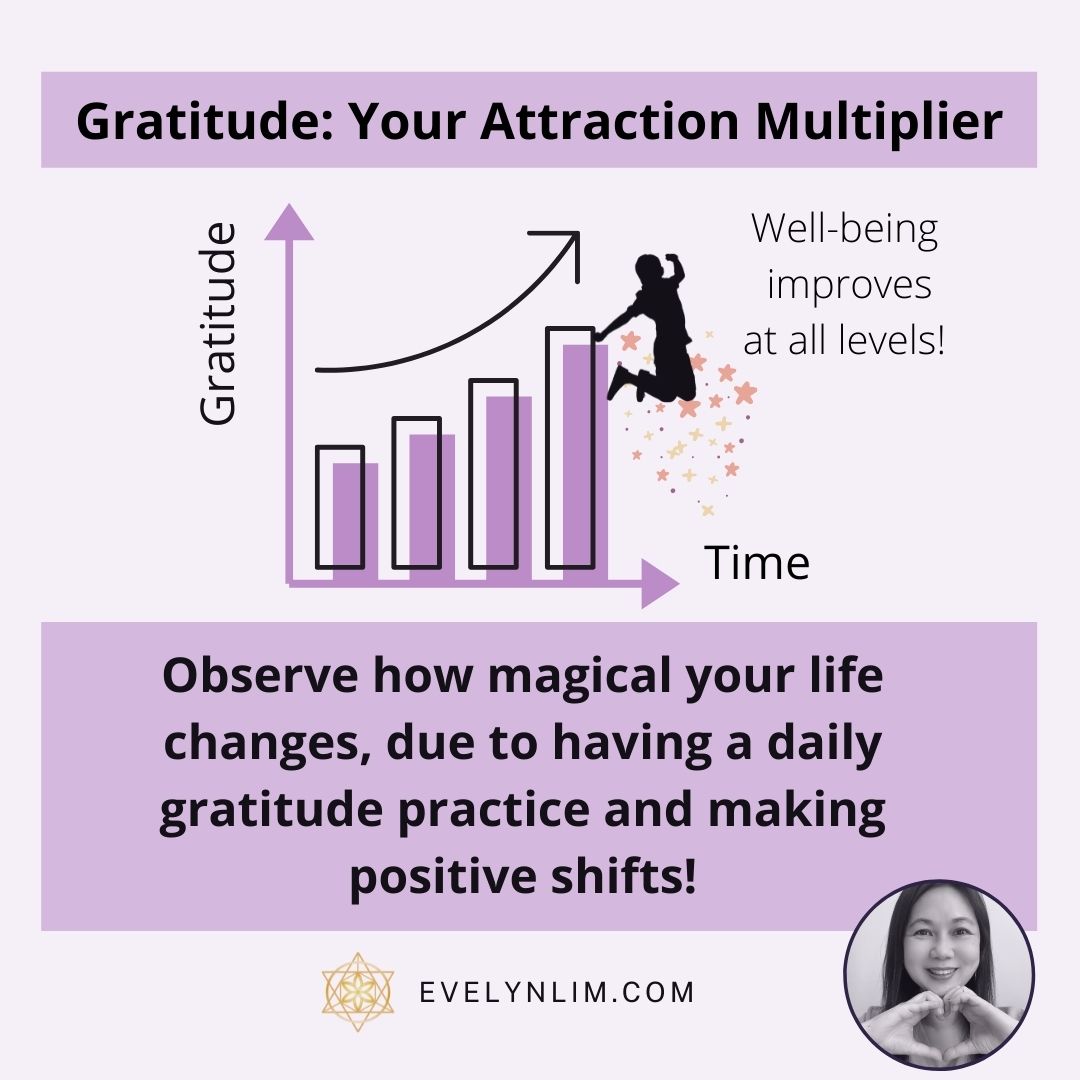

Felicia (not her real name) and I had worked together on releasing her fear of abandonment.
If we find ourselves getting angry, frustrated, anxious or upset easily, we may want to ask ourselves why we are triggered. Some of us would get badly triggered when we perceive that we have been abandoned or rejected even though in reality, it may not be necessarily true. However, this can hurt our relationships, work life and well-being. It was exactly what had happened to Felicia.

A big questions is: How can we build self-confidence, as an introvert, in a world that seems to favour the extroverts?
Some clients of mine who are introverts seem to believe that their quiet personality is some kind of death sentence and that they are already at a disadvantage.
Well, it is true that those who are extroverted or have an outgoing personality tend to attract friends easily. They are fun, bright and great to hang out with. Generally, they appear to be confident about themselves. Society is also inclined to believe that those who are extroverted make natural leaders. But does this mean that those who are introverted have no or less chance to be successful?
Well, I’d like to share from my perspective as someone with an introverted personality but still desiring to connect with others socially. Also, I’d like to correct some myths on introverts. I also like to believe that the world has enough space for introverts to thrive as much as the extroverts or anyone in between.
Most introverts are quiet. They can feel as if they “don’t belong”. Quietness can seem to be something out of place in a world that is noisy. In fact, introversion is often perceived as something undesirable or a sign of weakness. From not speaking up, our silence is interpreted as being shy, having a lack of confidence and as having nothing valuable to contribute.
As kids, we may be taught that there is something fundamentally wrong with having an introverted or quiet personality. We were not the popular ones in school for sure. I recall feeling rather hurt when I was labelled as a “quiet kid”, which caused me to retreat even more into silence.
Recently, while attending a dinner-cum-networking gathering, someone suddenly pointed out that I have been really quiet. For a moment, I could feel as if all eyes were on me. Till then, I was occupied with listening to what the more talkative ones had to share. Put in the spot, I felt as if I had to defend myself for being quiet.
Keanu Reeves has much to say about being a quiet person…
I hate when people ask me: “Why are you so quiet?” Because I am. That’s how I function. I don’t ask others, “Why do you talk so much?” It’s rude.
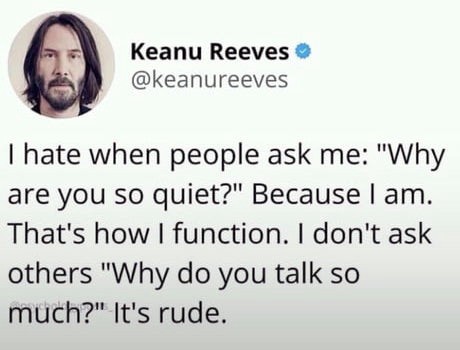

Do you often feel unwanted and lonely because you believe that “I don’t belong”?
Do you often feel left out in social circles?
Over time, anyone who constantly feels unwanted and experiences “not belonging” can start to feel depressed and disconnected. The heart senses the separation. A belief of “not belonging” can impact our ability to form close friendships or relationships with our spouse and loved ones.
We experience “not belonging” because we can’t seem to fit in. It may be that we are not comfortable in our own skin, to begin with. Or that we are afraid of being hurt because we hold the fear of rejection. The conviction that we are not wanted arises when we find out that friends are leaving us out from their social circles or are not asking us out.
Many of my clients who are spiritual seekers confess to feeling the same way. They feel like an “alien” on this planet especially when their beliefs, ideas and values differ from commonly held ones. Holding on to disconnection, they question what their purpose in life is.
Then, there are the introverts and empaths. Introverts need plenty of “me” space and alone time whereas empaths find it necessary to protect themselves. Within this group, those who keep to themselves excessively can also develop the belief of “being unwanted” especially where they have decided not to engage. They go through the constant conflict of not knowing what they want.
All these can contribute to the perception of “not belonging”.

We tend to pay little regard to any form of emotional neglect that we’ve experienced as a child. After all, it is not as if that we had faced a real survival threat. Nor were we physically abandoned or abused either. So it would seem unthinkable to even imagine that there can be any sort of trauma related to emotional neglect.
Therein lies where the problem is.
Because it did not cross our minds that a lack of self-esteem or our struggles with anxiety and mental health could be contributed by the emotional neglect that we had experienced when we were young, we don’t seek help or therapy for our issues. In fact, we usually perceive that seeking help from professionals as only warranted for major traumas. Sure, problems caused by emotional neglect may be less serious than say, a case of torture or abuse. However, emotional neglect can also cause problematic wounds when we bury them deep in our psyche.
So, here’s what I eventually discovered…
Emotional neglect can inflict invisible wounds, even in the absence of any physical signs of abuse.

If you are experiencing the struggle over financial lack, it can be challenging to see the lessons money scarcity offers. You are in emotional struggle when you feel worry, frustration and stressed out. Many of us do find it hard to have clarity when we experience emotional overwhelm. Through this article, I hope to shed some insights that have personally helped me create a shift in my relationship with money.
For a start, it may seem impossible to will away the perception of scarcity. After all, limits are very much a natural part of our physical life. Just think about it, there is 24 hours in a day, 60 minutes in an hour and 60 seconds in one minute. You have got to finish the work that needs to be done within a certain time frame.
Then, there is also ageing and the cycle of life and death. The physical world has some kind of built-in mechanism where conditions and limits are already preset.
It was also where my confusion came in as well.

How do you begin to improve your relationship with money?
In this updated post, I’d like to share a way that is easy to understand and relate to. This update also covers one of the topics that I am teaching in my Relationship with Money Course.
What can be helpful is to think of a romantic relationship. And in every romantic relationship, there are stages. So, consider the different phases that a romantic relationship will go through; that is from dating to developing love and true intimacy. Next, draw on the understanding to apply it in the context of your relationship with money.